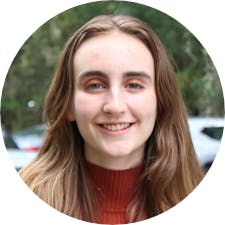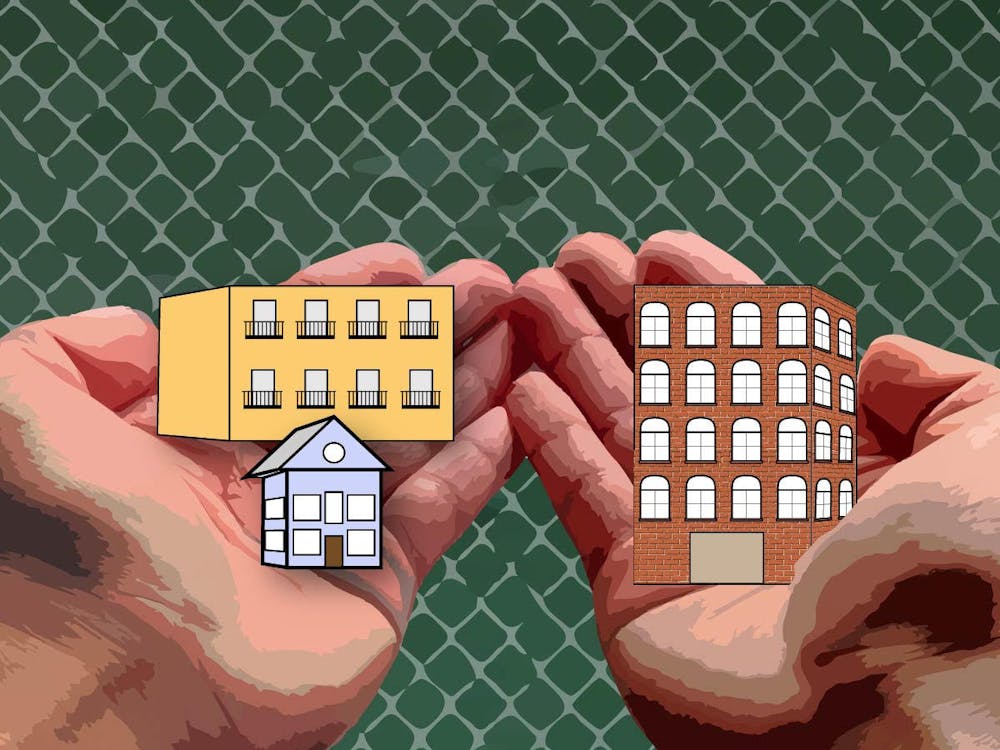Sherry Roberts cried when she and her husband, Albert, held the keys to their first home. It was the first time her family had owned property for generations.
Roberts was raised in Gainesville public housing complex Kennedy Homes, where she said she was almost sexually assaulted and witnessed a murder when she was 9. She also lived with her husband and children in Eden Park, another apartment meant to be affordable housing — there, gun violence, drug dealing and neglectful parents were common, she said.
One day, Roberts decided she didn’t want her husband’s money going toward an apartment they would never own. Roberts wanted a house, she said.
“When you become a homeowner it’s a different type of pride,” Roberts said. “It’s a different type of feeling.”
Affordable housing has been a buzzword in local politics for over a decade. Still, apartment rent rates have steadily increased across the country, including in Gainesville — the city was named “severely unaffordable” by Demographia’s International Housing Affordability survey in 2019. That was prior to national COVID-19 pandemic-related price hikes.
The city of Gainesville announced Feb. 7 it will put $7.2 million toward grants for apartment complexes willing to build housing for families at or below 65% of the city’s average median income level — amounting to $26,609, according to the U.S. Census Bureau.
Roberts is one example of a Gainesville resident who has benefited from homeownership.
She received her GED certificate from the Loften Center and found full-time employment at the Alachua County School Board as a clerical assistant. After two years of both husband and wife working and a letter of recommendation from their landlord, the Roberts family was able to purchase a home in the East Gainesville Azalea Trails neighborhood.
She bought her home for $35,000. Her monthly mortgage payment is $420.
But that was 1994.
In 2023, a $35,000 home would be $69,115. Roberts’ house is valued at $147,400 — nearly twice the amount she bought it for, adjusted for inflation.
Now, it’s not possible for Black families in Gainesville to do what she did, Roberts said.
The city’s plan is to have developers apply for the grant with a presentation about how they will include affordable housing, Mayor Harvey Ward said. The presentations will occur from Feb. 9 to March 6. Then, the city commission will vote on which developers will receive the money.
Ward has never seen this amount of funds put toward affordable housing on a city level in Gainesville, he said.
“It puts us in a position we don’t have very often,” Ward said. “This is an entirely different thing where we are the last word.”
The money comes from the American Rescue Plan Act, part of President Joe Biden’s Build Back Better plan. It offers grants to cities across the U.S. to build local infrastructure — money Gainesville received last year.
Building any kind of housing is expensive, Ward said.
The city will typically partner with developers searching for an affordable housing federal tax credit, but the local government itself has rarely been able to commit its own funds toward a project. Opening up the ARPA money to developers will change that, Ward said.
Developers can also apply for the grant if they build for-sale houses for incomes at or below twice the federal poverty level, which, for a family of four, would amount to roughly $55,500. To GRACE Marketplace board chair Michael Raburn, that option is the fix for the affordable housing problem.
Homeownership is a path forward for families in Gainesville, Raburn said. He works with homeless and low-income people and serves on the Gainesville Affordable Housing Advisory Committee.
A solution the city has pursued is mixed-use housing, which requires developers to include a small percentage of affordable units alongside market-rate ones in order to get city approval.
But high-rise complexes with some affordable housing requirements, like the apartment the commission allowed zoning exceptions for Feb. 2, are not a solution, Raburn said.
“If you’re going to spend your life in [north] central Florida, you’re probably going to want a yard and a dog and kids and a trampoline, a pool,” Raburn said. “If their entire solution is to stack everyone up in apartments downtown, I don’t think people want that.”
The growing student population increases the demand for apartments that go for more than $1,000 a bed, Raburn said. In turn, more affordable complexes are transformed into luxury apartments year after year, and the concept of developing neighborhoods is forgone altogether. A lack of houses and high demand creates high prices.
In the meantime, residents in lower-income areas like East Gainesville are left behind, Raburn said.
“If you don’t have housing, your number one problem by far is that you don’t have housing,” he said.
But Raburn said he doesn’t support building affordable housing wherever a city can.
80% of all affordable housing is in East Gainesville, according to Alachua County data. The predominantly Black, low-income area houses the city’s poorest residents while only providing one U.S. Department of Agriculture-approved grocery store — a Walmart — east of Main Street.
For comparison, there are seven Publixes, two Asian markets, two ALDIs, a Trader Joe’s, a Whole Foods and a Ward’s Supermarket west of Main Street. This makes census tracts in East Gainesville food deserts, Raburn said.
This is what tied up the concept of Dogwood Village in controversy last January, when 42 residents came to voice their opinions about the possibility of a new affordable housing complex in East Gainesville. The majority were Black, from the east and spoke against building Dogwood Village.
They wanted to see more efforts to build affordable housing in West Gainesville closer to jobs and grocery stores.
“I’m sympathetic to their approach because they’ve been hurt and burned so often,” Raburn said.
One of the jobs of the Affordable Housing Advisory Committee is to approve an affordable housing development plan to go up for a lottery for state funding. For the past three years, Raburn has voted no on the annual proposal because each one is in East Gainesville.
But he’s outvoted every year.
Better places to build would be by the Walmart on NW 23rd St., he said, where more jobs are. He hopes the proposals for the ARPA grant money look west, not east, he said.
Roberts hopes so too, she said, for the sake of the children she works with at her nonprofit, Parents4Parents, where she provides educational services for families in public housing.
They will often talk about drugs and sex as young as 4 years old, she said. When they say those things, Roberts said it reminds her of her own upbringing in Kennedy Homes.
She believes houses are what her community in East Gainesville needs to heal, she said.
Her youngest daughter, 15-year-old Shree Roberts, was raised in her Azalea Trails house. Shree now has a home to fall back on.
Roberts tells her daughter and her other three children that if she dies today, she would die happy because she knows her children will be able to build on the life she and Albert made for them in that house.
“We’re still growing, we’re still developing,” she said. “We’re still trying to break bad generational cycles. But the foundation is there.”
Contact Siena at sduncan@alligator.org. Follow her on twitter @SienaDuncan.

Siena Duncan is the Fall 2024 Editor-in-Chief of the Alligator. She's interned for the Salt Lake Tribune, the Tampa Bay Times and POLITICO. In her spare time, she loves to take walks to see the cows by her apartment and add more to her sketchbook.






